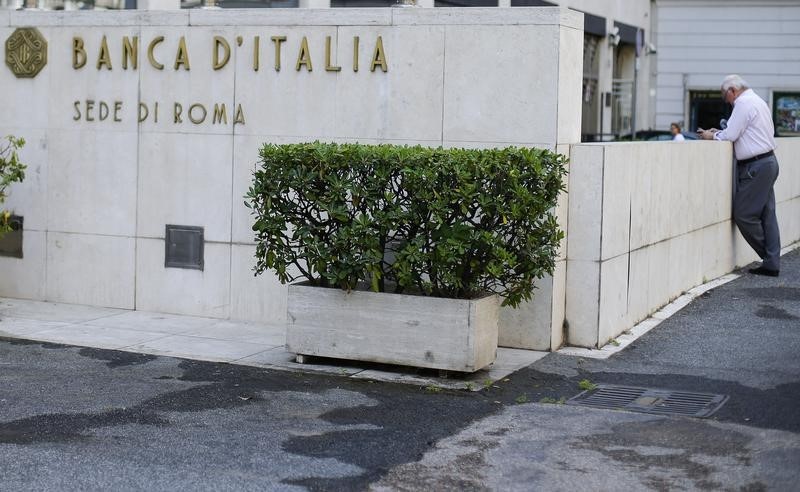Gold prices set for weekly gains on dovish Fed outlook; silver near record high
By Stefano Bernabei
ROME (Reuters) - Italy's largest banks will meet the Treasury and central bank on Monday to thrash out a plan to set up a state-backed fund to buy bad loans and plug capital shortfalls at its ailing banks, five sources familiar with the matter said on Sunday.
Italy's government is anxious to assuage concerns about its banking system, which fared badly in financial stress tests carried out by the European Central Bank and is groaning under the weight of 360 billion euros (£290.4 billion) in bad loans.
The fund's precise mandate still needs to be decided, the sources said. Possibilities include buying non-performing loans and helping recapitalise weak banks.
An announcement could be finalised as early as Monday.
The fund would have a maximum capitalisation of 5 billion euros, one of the sources said, adding state holding company Cassa Depositi e Prestiti would contribute no more than 300 million euros.
Prime Minister Matteo Renzi's government wants the fund to be majority-owned by private investors, to seek to comply with European rules limiting state aid.
The chief executives of Italy's two biggest banks, Unicredit (MI:CRDI) and Intesa Sanpaolo (MI:ISP), will attend Monday's meeting, two of the sources said.
The Treasury did not immediately respond to a request for comment.
Unicredit chief executive Federico Ghizzoni said on Thursday his bank would invest in the fund provided it was set up to support the whole sector and not just help out a few banks.
The plan also envisages contributions from Italy's banking foundations, investment funds and pension funds, a source said last week.
The government is keen to have the plan ready as soon as possible, to head off worries about capital shortfalls and bad loans which have dragged banking stocks down 40 percent this year (FTIT8300).
If the fund is set up quickly, its first test would be a 1.76 bln euro capital increase at Banca Popolare di Vicenza, due to be completed by May 10, which is facing weak market demand.
UniCredit is currently the sole guarantor for the capital increase and its own capital ratios could suffer if it ended up having to take on a lot of unsold shares in the rights issue.
